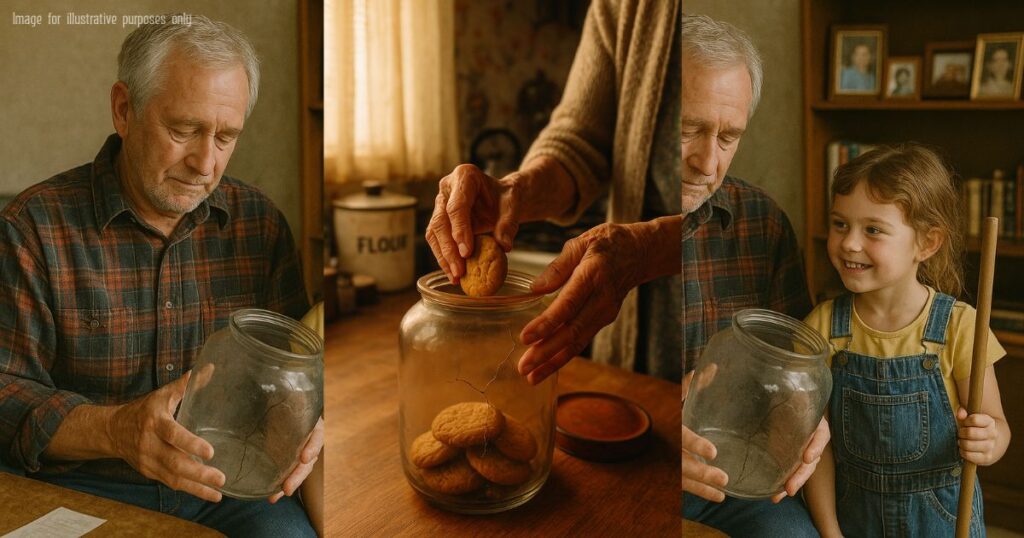She didn’t reach in, just let her fingers rest on the lid like she needed to touch something real.
“I was the kid who used to sneak in through the back door,” she said. “Back in ’78. Lived two houses over. Mom drank. Dad hit.
I used to hide in that old tree out back until she spotted me one day and brought me in.”
Now I remembered. Skinny little girl, buzz cut and scabs on her knees. Always barefoot. I must’ve been nine. She looked five.
“Miss Delaney,” I said slowly.
She smiled, and I swear, that broken little girl flickered across her face. “She never called me that. Just ‘sugar.’ Said if I wanted to stay, I had to follow the rule. Feed Bandit, sweep the walkway, help her peel apples.”
She looked around, eyes glistening. “First place I ever felt safe.”
We sat down at the same kitchen table where Grandma used to peel potatoes with a paring knife worn thin. Miss Delaney told me everything.
She’d bounced through group homes after her mom OD’d. Had two kids of her own now — one in college, the other working at a mechanic’s shop.
“Didn’t know what family meant until your grandma,” she said. “I never forgot the jar. Or the rule.”
That night, I couldn’t sleep.
I kept thinking about all the people who’d passed through Grandma’s house. How many had earned a cookie. How many had learned the real sweetness came from being seen — from being worth the work.
I walked into the kitchen and lit the stove like Grandma used to, just to warm the place up. The jar gleamed in the low light, still cracked, still sacred.
I pulled out a fresh notepad and wrote a new note for inside:
“Earn your sweetness — but pass it on.”
The next morning, I posted on Facebook — just a photo of the jar and the words “New Rule, Same Jar.”
Within a week, it had spread. First the cousins. Then the neighbors. Then people I didn’t even know.
They started sharing their own “cookie jar” stories. Not all literal. One man wrote about how he started fixing his elderly neighbor’s mailbox just to see her smile.
A woman in Nebraska said her dad used to tell her, “No candy unless you shovel the walk.”
It caught fire.
Someone made a group — The Cookie Jar Rule Project. People posted daily about small good deeds they’d done in memory of someone they’d lost — or someone who’d saved them.
Somewhere along the way, a retired teacher in Kansas wrote this:
“My 6th graders can’t sit still, but they can care. So now, before lunch, we earn cookies with kindness. One kid gave his gloves to another. One wiped up a spill he didn’t make. The jar is full, but my heart’s fuller.”
A month passed. Then two.
And then, one evening, I got a letter.
Real paper. Real pen. No return address — just a simple “For the grandson of the cookie jar.”
Inside was a photo. Faded. Creased. It showed Grandma on her porch swing, holding Bandit, with four barefoot kids sitting around her, each with a cookie in hand and a chore list tucked in their pockets.
On the back, in blocky handwriting:
“She didn’t just bake cookies. She baked people. Good ones.”


